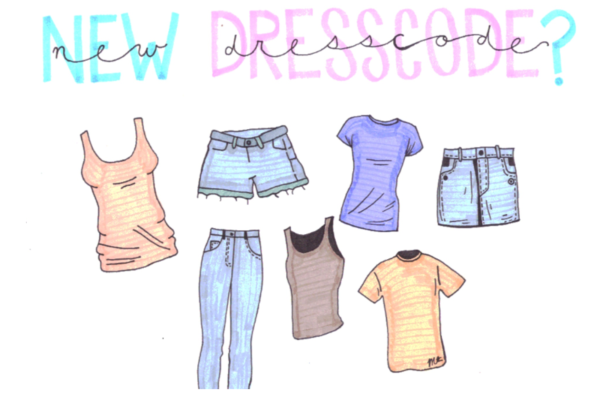Juuling: a harmless trend or dangerous addiction?
“The current generation of e-cig smokers isn’t old enough for scientists to properly analyze the effects of the drug… the long term effects of e-cigarette’s on your body are unknown.”- the BostonGlobe.
Almost all students that currently attend high school are familiar with the term, “Juuling.” The word has become synonymous to vaping, referencing the extreme popularity of Juul brand vapes.
Like all e-cigarette devices, the intended purpose of the Juul, was to feign smokers off traditional cigarettes. The Juul is supposed to provide a healthier alternative for habitual smokers, due to its absence of dangerous carcinogens.
According to the official juulvapor website, using a Juul is also more environmentally responsible than smoking cigarettes, as only dissolvable vapor is released into the air, which cannot pollute the environment.
Though Juuling has definite health and environmental advantages over traditional smoking, that doesn’t mean that habitually using a Juul is necessarily safe or good for someone.
On the FAQ portion of Juul’s official website, it is stated that one Juul pod contains 0.7 mL of nicotine, the equivalent to an entire pack of cigarettes. Heavy nicotine exposure during one’s teenage years has been proven by the US National Library of Medicine National Institutes of Health to cause a lifetime of addiction imprinted onto the developing brain.
According to a study from Brown University, it was determined that prolonged exposure to nicotine may be linked to an increased risk for atherosclerosis, or a ‘hardening of the arteries that can cause heart attacks.’
What may be the most concerning aspect of the widespread popularity of the Juul, is that its so new.
The generation of current teenagers and young adults that have adopted e-cigarettes into their lives can almost be compared to human guinea pigs, in that scientists have no idea how the effects of constant Juuling will affect a persons health in the future.
In fact, the Juul and e-cigarette company is so new that it receives little to no FDA regulation. According the New York Post, the industry will not receive the same amount of regulation as cigarettes until November of 2018, when the FDA legally requires all e-cig manufactures to register as “tobacco products.”
In the mean time however, there is really no way of knowing how harmful regularly using a Juul is for one’s health. By the time the long-term effects of Juuling are revealed, however dangerous or benign they might be, it may be too late for this generation to make a change.
No matter the effects of Juuling, it’s clear that the trend is here to stay. Advocating against their use is almost in vain, especially to an audience of teenagers who are particularly known for stubborn habits.
A person’s decision to Juul, vape, use e-cigarettes, or anything else, is ultimately up to oneself.
But there is a real possibility that a seemingly harmless youthful activity can lead to dangerous health problems in the future. And our generation might be a lot better off if we stopped pretending that wasn’t true.

Senior
Journalism III student
Audrey’s favorite quote is, “To be hardcore, you have to live hardcore.”






